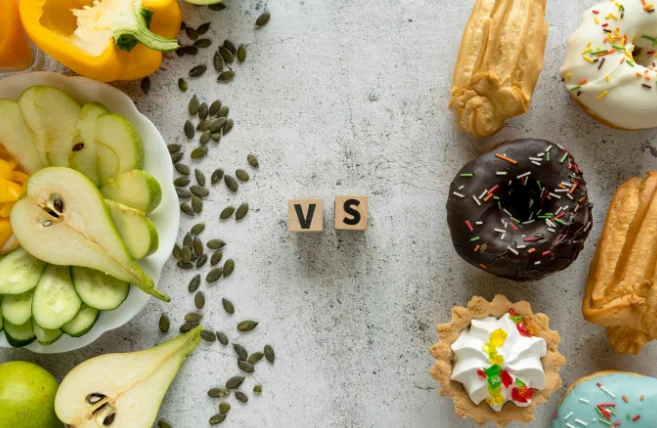Whether you are stepping onto the court, the field, or into the gym, what you eat before a game can significantly impact how you perform. Pre-game nutrition is more than just grabbing a quick snack, it is about strategically fueling your body for energy, endurance, and mental focus. While talent and training are crucial, the foods you eat in the hours before competition play a key role in unlocking your full potential.
In recent years, athletes and coaches alike have paid more attention to the science of nutrition. Why? Because it is clear that proper eating can make the difference between pushing through the last few minutes or hitting a wall. Eating smart does not just help you perform better physically, it also sharpens concentration, reduces the risk of injury, and aids in faster recovery.
The Goals of Pre-Game Nutrition
The goal of game day nutrition is to provide sustained energy without making you feel heavy, bloated, or sluggish. An effective pre-game meal or snack should:
● Replenish glycogen stores (your body’s primary energy source)
● Provide stable blood sugar levels
● Keep you hydrated
● Be easy to digest
For example, many athletes benefit from a balanced pre-game meal 3–4 hours before competing, followed by a lighter snack 30–60 minutes prior to action.
What to Eat: The Key Nutrients
Carbohydrates for Energy
Carbs are the body’s preferred fuel during high-intensity sports. Opt for complex carbohydrates like whole grain toast, oats, sweet potatoes, or fruit. These digest more slowly and provide lasting energy without causing blood sugar crashes.
Protein for Muscle Support
Adding a moderate amount of protein helps sustain muscle tissue and prevents hunger mid-competition. Greek yogurt, lean poultry, eggs, or plant-based options like quality roasted nuts are excellent sources of protein that are also easy on the stomach.
Healthy Fats for Endurance
While fat takes longer to digest, a small amount of healthy fat can help with longer-lasting energy, especially for endurance athletes. Nuts, seeds, and avocado provide beneficial fats and are rich in antioxidants. A handful of almonds or walnuts, or a spoonful of peanut butter with a banana, makes for a great pre-game snack.
Hydration for Focus and Performance
Dehydration can cause fatigue, cramps, and impaired mental focus. Make sure you are sipping water throughout the day, and if you are sweating heavily, consider electrolyte-rich drinks to replenish sodium, potassium, and magnesium.
Smart Pre-Game Snacks
Here are a few practical snack ideas you can use 30–90 minutes before competing:
● Whole grain toast with peanut butter and banana
● A smoothie with Greek yogurt, berries, and almond butter
● Rice cakes with cottage cheese and honey
● Oat bars with nuts, seeds, and a touch of maple syrup
These snacks combine carbs, protein, and healthy fats, an ideal combo for sustained energy and performance.
What to Avoid Before You Compete
While fueling up is essential, what you avoid is just as important as what you eat. Steer clear of:
● Heavy, greasy, or fried foods (they can sit in your stomach and cause discomfort)
● High-fiber foods right before a game (to avoid digestive distress)
● Excessive sugar or candy (which can cause a crash mid-performance)
● Too much caffeine or energy drinks (can lead to dehydration or jitters)
Also, never experiment with new foods or supplements on game day. Stick to what you have tried during training or practice to avoid surprises.
Tailoring Nutrition to Your Sport
Not all sports have the same energy demands. Endurance sports like soccer, cycling, or long-distance running require longer-lasting fuel, so meals rich in complex carbs, protein, and some fat are key. High-intensity, short-burst sports like basketball or sprinting may benefit more from faster-digesting carbs closer to the event.
In both cases, nuts, especially when roasted for better flavor and crunch offer an excellent, portable, and balanced fuel source. Their versatility and compact nutrition make them a favorite among athletes across disciplines.
Sport Innovations and Nutrition Trends
With the rise of sport innovations, athletes today have access to better tools and data to personalize their performance. From wearable hydration monitors to AI-powered diet planning, sports nutrition has evolved dramatically. Still, despite all these advances, the basics have not changed: whole foods, smart timing, and balanced meals remain at the core of effective fueling.
Interestingly, even as high-tech supplements and synthetic formulas flood the market, many elite athletes are returning to simple, nutrient-dense foods like nuts, oats, fruits, and lean proteins. These foods are trusted, proven, and fit seamlessly into even the most advanced training plans.
Final Thoughts
Fueling up before a game is not just about avoiding hunger, it is about giving your body exactly what it needs to excel. A mix of complex carbs, protein, and healthy fats will help you feel strong, focused, and ready for the challenge ahead. Keep it simple, time it right, and don’t underestimate the power of whole foods like nuts to enhance your performance.
Remember, what you eat today fuels how you play tomorrow. Make your pre-game meal part of your winning strategy.


